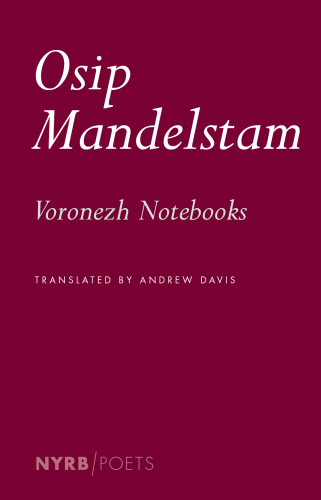
Voronezh Notebooks
کتاب های مرتبط
- اطلاعات
- نقد و بررسی
- دیدگاه کاربران
نقد و بررسی

September 2, 1996
Nearly comatose after the horrors of repeated interrogations by Stalin's regime, Mandelstam (1891-1938) literally wrote himself back into a semblance of life while exiled 300 miles from Moscow in Voronezh: "There are still plenty of martlets and swallows./ The comet has not yet given us the plague,/ and the sensible purple inks/ write with tails that carry stars." While associated with the compressed, lyrical images of Anna Akhmatova and the Acmeist movement of the Russian modernist avant-garde, Mandelstam presents visions of the future, his own and his country's, that are steeped in necessarily coded foreboding: "death will fall asleep like an owl in daytime./ The glass of Moscow burns between cut-glass ribs." Any relief that the past might provide is empty and unavailable: "Wave after wave runs on, breaking the wave's back,/ throwing itself at the moon with a prisoner's longing." Although some of the layers of word-meaning and soundplay that so influenced Paul Celan, another Jewish-born exile who struggled to forge a present out of poetry, are inevitably lost in translation, it is a great gift to be able to read these 90 poems together and complete in English for the first time, with explanatory notes provided for each. They form a wrenching diary of "iron tenderness" and doomed, penetrative brilliance.

























دیدگاه کاربران